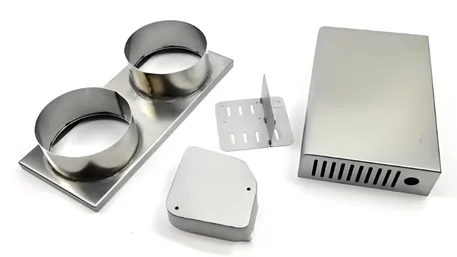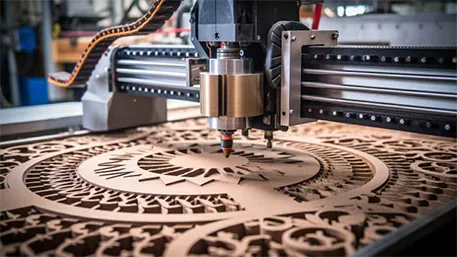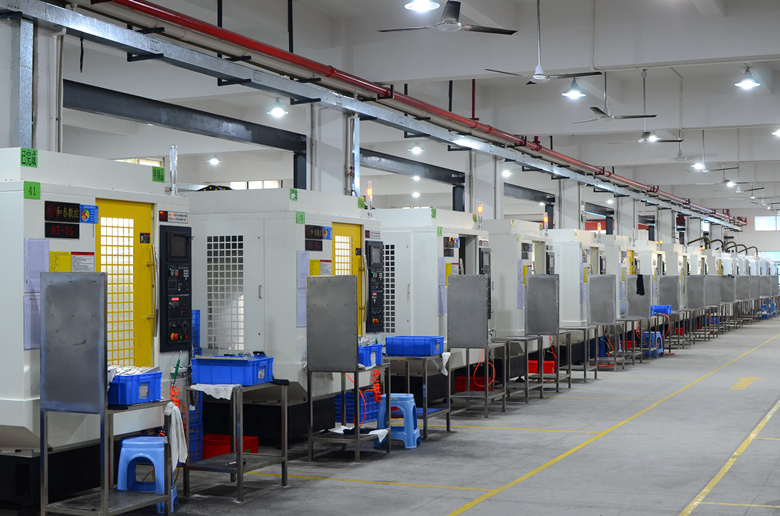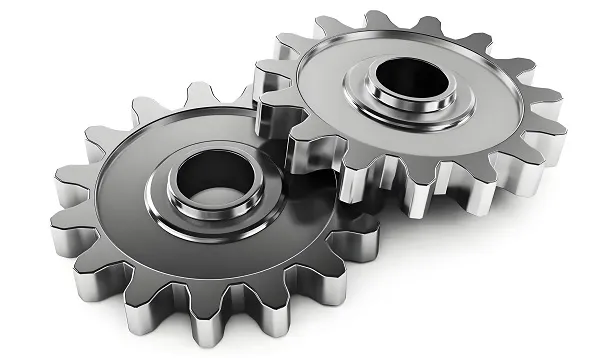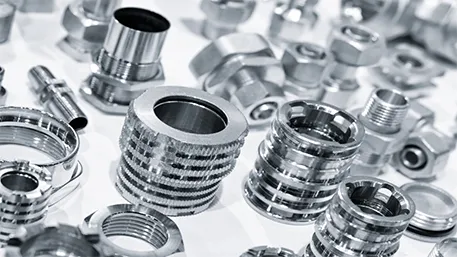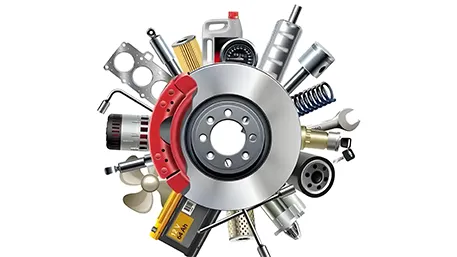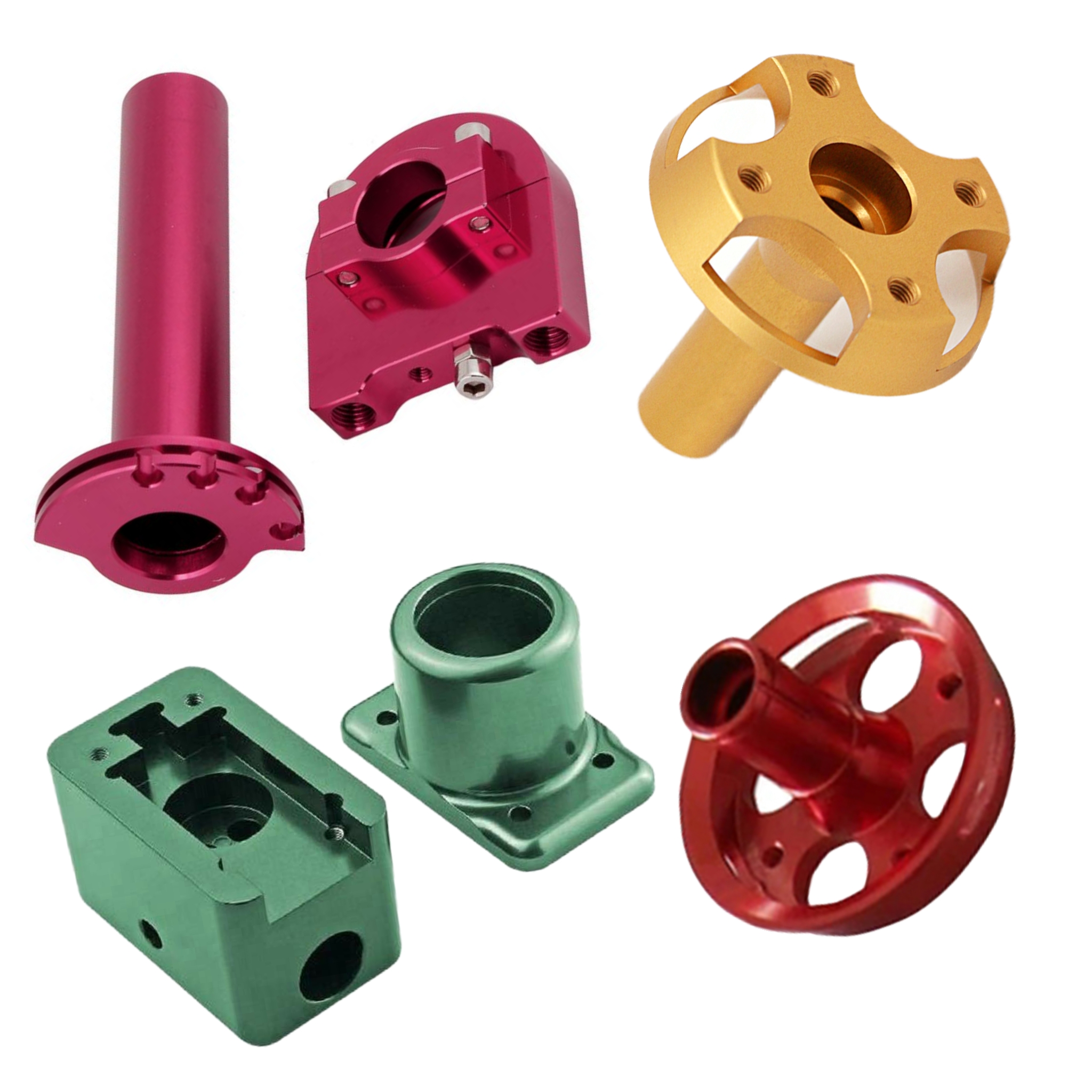
- Achieving tight tolerances of ±0.02 mm
- Preventing warping in machined parts
- Ensuring consistent quality across small to medium batches
- Maintaining cost control throughout the production cycle
What Are CNC Machined Plastic Parts?
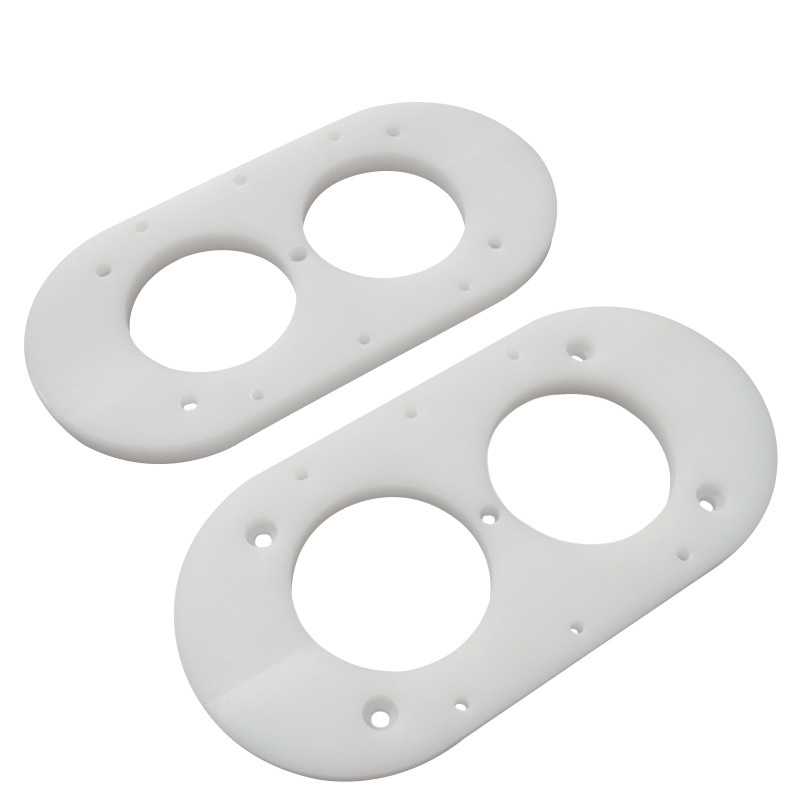
Key Characteristics of CNC Plastic Machining:
- Material Removal Process: Uses cutting tools to shape plastic blocks
- High Precision: Achieves tight tolerances not possible with additive methods
- Complex Geometry: Handles intricate designs with multi-axis capabilities
- Superior Surface Finish: Produces smooth surfaces with minimal post-processing
- PEEK: Requires controlled cutting speeds to prevent thermal degradation
- Delrin: Demands specific tooling to achieve optimal surface quality
- Nylon: Needs proper fixturing to prevent vibration during machining
Why Choose CNC Machining for Plastic Parts?
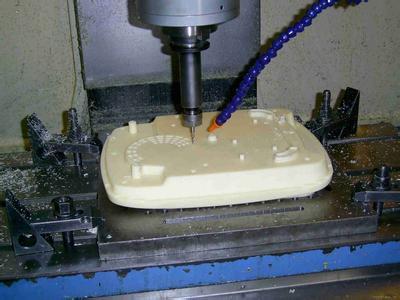
Manufacturing Method Comparison
|
Manufacturing Method
|
Tolerance Range
|
Surface Finish (Ra)
|
Setup Cost
|
Unit Cost (100 pieces)
|
Lead Time
|
|
CNC Machining
|
±0.005-0.05 mm
|
0.8-3.2 μm
|
Low
|
$15-50
|
3-7 days
|
|
3D Printing
|
±0.1-0.2 mm
|
6.3-12.5 μm
|
Very Low
|
$5-25
|
1-3 days
|
|
Injection Molding
|
±0.02-0.1 mm
|
1.6-6.3 μm
|
Very High
|
$0.5-5
|
4-8 weeks
|
Key Advantages of CNC Machining:
- Achieves tolerances as tight as ±0.005 mm
- Surpasses most additive manufacturing methods
- Essential for components requiring precise fits and functional performance
- Produces smoother surfaces with Ra values as low as 0.8 μm
- Eliminates layer lines common in 3D printed parts
- Reduces need for secondary finishing operations
- No upfront mold costs associated with injection molding
- Economically viable for production runs from 1 to 10,000 pieces
- Allows for rapid prototyping and on-demand production
- Handles common plastics like ABS and nylon
- Processes high-performance polymers such as PEEK and PTFE
- Accommodates materials with different mechanical properties
Common Plastic Materials for CNC Machining
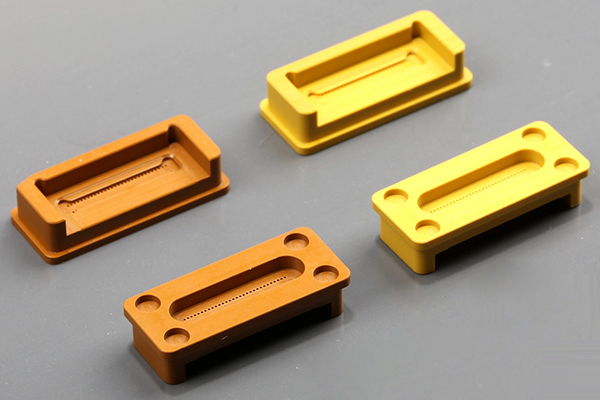
Material Properties Comparison
|
Material
|
Tensile Strength (MPa)
|
Temperature Resistance (°C)
|
Machinability
|
Common Applications
|
|
ABS
|
40-50
|
70-90
|
Excellent
|
Housings, enclosures
|
|
Delrin
|
60-70
|
120-150
|
Excellent
|
Gears, pulleys
|
|
Nylon
|
65-80
|
120-180
|
Good
|
Bushings, bearings
|
|
PC
|
60-75
|
130-140
|
Good
|
Sight glasses, lenses
|
|
PMMA
|
50-70
|
80-100
|
Excellent
|
Display cases
|
|
PEEK
|
90-100
|
260-280
|
Fair
|
Aerospace, medical
|
Detailed Material Information:
- Properties: Good impact resistance, excellent machinability
- Advantages: Dimensional stability, consistent performance
- Applications: Housings, enclosures, consumer electronics components
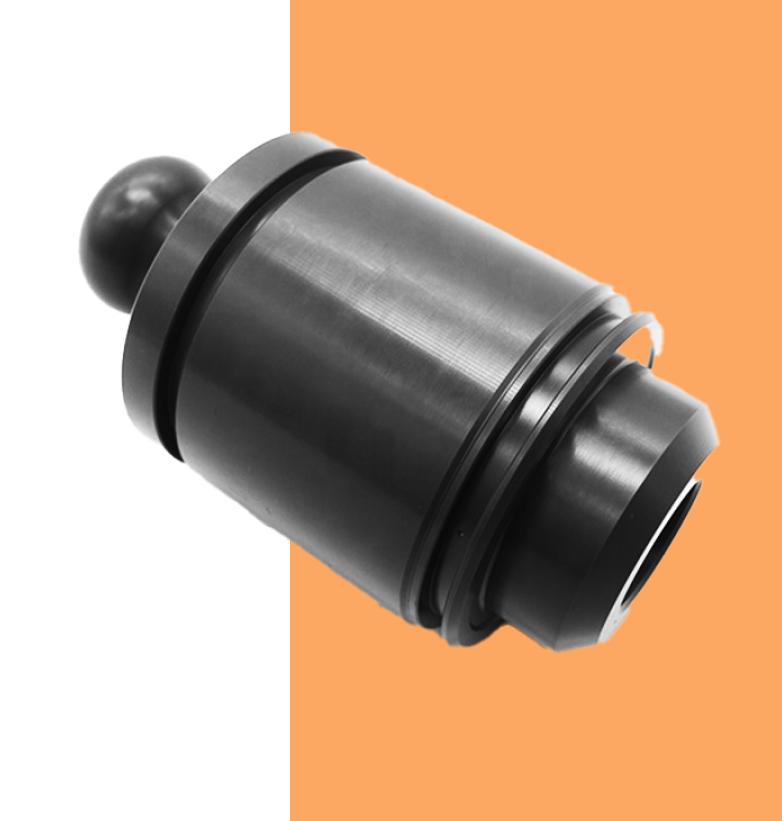
- Properties: Excellent dimensional stability, low friction
- Advantages: Reliable mechanical performance, wear resistance
- Applications: Gears, pulleys, precision automotive components
- Properties: High strength-to-weight ratio, good chemical resistance
- Advantages: Durable, self-lubricating properties
- Applications: Bushings, bearings, structural industrial components
- Properties: Transparency, high impact resistance
- Advantages: Combination of clarity and strength
- Applications: Sight glasses, light covers, medical device components
- Properties: Superior optical clarity, scratch resistance
- Advantages: Excellent aesthetic qualities
- Applications: Display cases, lenses, light guides
- Properties: High heat resistance, biocompatibility
- Advantages: Performance in extreme environments
- Applications: Aerospace components, medical implants
Key Capabilities in Custom CNC Plastic Machining
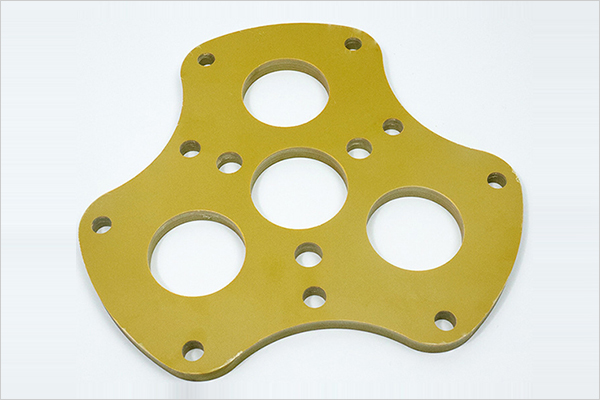
Advanced Machining Technologies
- 5-Axis CNC Machines: Handle complex geometries with precision
- High-Speed Machining: Reduces cycle times while maintaining quality
- Multi-Spindle Systems: Increases production efficiency for complex parts
Quality Control Measures
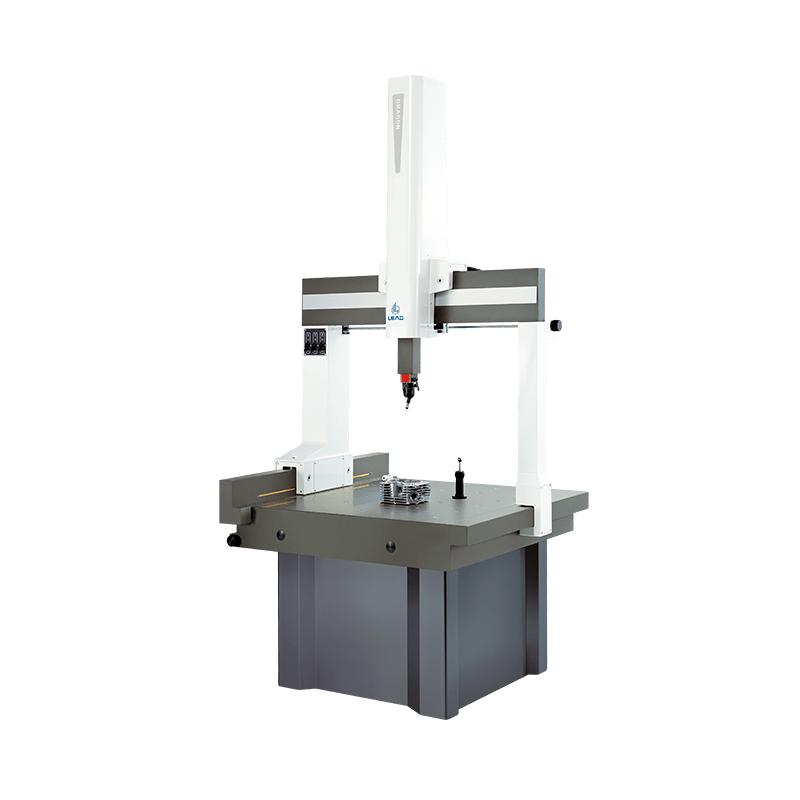
- Coordinate Measuring Machine (CMM): Ensures dimensional accuracy
- Laser Scanning: Verifies complex surfaces and contours
- Statistical Process Control (SPC): Maintains consistent quality
Production Capabilities:
- Tolerance Control: From ±0.005 mm to ±0.05 mm
- Part Size Range: From micro-components to large parts (up to 1200×800×600 mm)
- Production Volume: 1 piece to 100,000+ pieces
- Lead Time: 24-hour prototype service available
Surface Finishing Options:
- As-Machined: Standard machining finish (Ra 1.6-3.2 μm)
- Polished: Smooth surface finish (Ra 0.8-1.6 μm)
- Textured: Custom surface patterns and textures
- Coated: Protective and decorative coatings
Industries Using Machined Plastic Parts
Automotive Industry
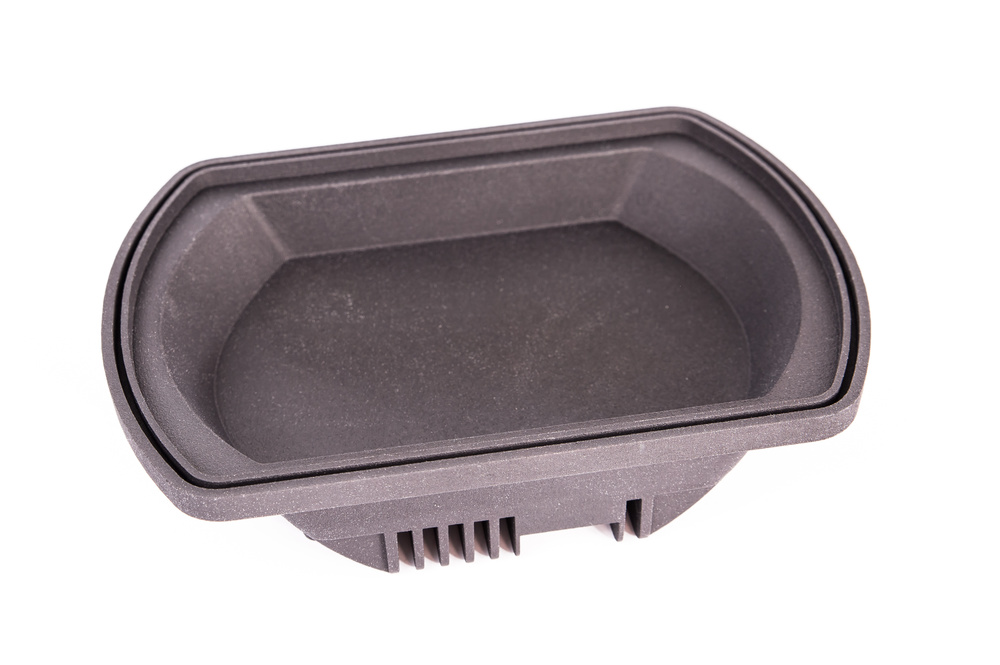
- Transmission Components: Precision gears and bushings
- Engine Parts: Sensor mounts and connectors
- Interior Systems: Custom brackets and housings
- Exterior Components: Aerodynamic parts and trim
Medical Industry
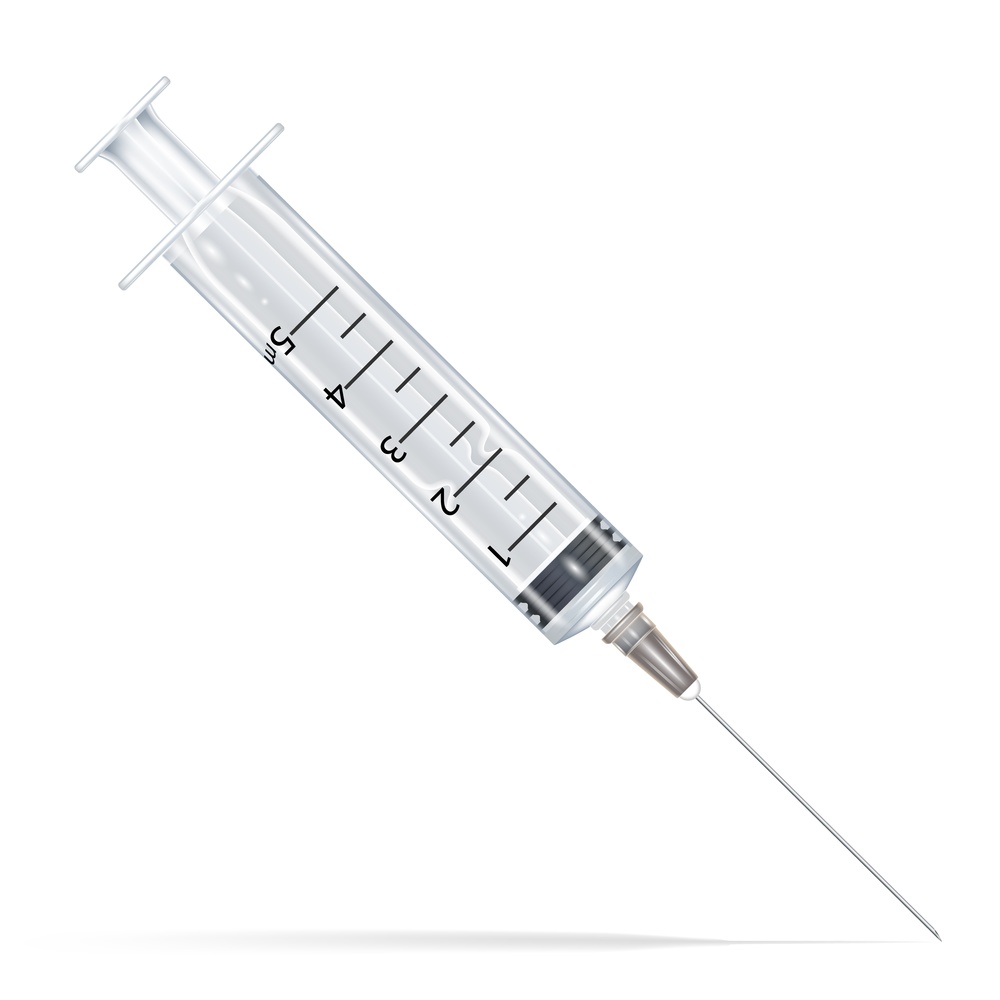
- Surgical Instruments: Precision cutting tools and handles
- Diagnostic Equipment: Enclosures and mounting hardware
- Implants: Biocompatible components (PEEK, titanium)
- Disposables: Single-use medical devices
Electronics Industry
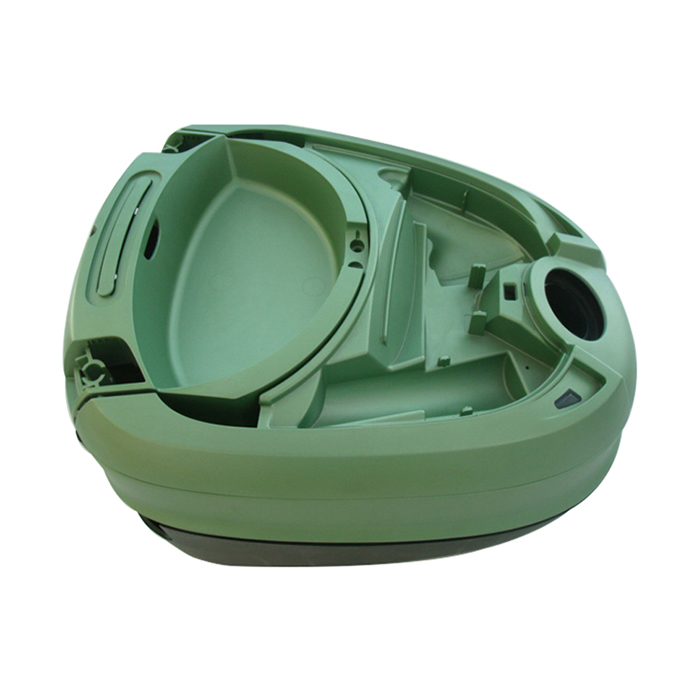
- Consumer Electronics: Phone cases, tablet housings
- Industrial Electronics: Control panel enclosures
- Telecommunications: Fiber optic components
- Semiconductor: Wafer handling equipment parts
Aerospace Industry
- Aircraft Interiors: Seat components, tray tables
- Avionics: Electronic enclosures with flame retardant materials
- Engine Components: Heat-resistant parts (PEEK, PEI)
- Structural Parts: Lightweight brackets and supports
How to Work With a CNC Machining Supplier
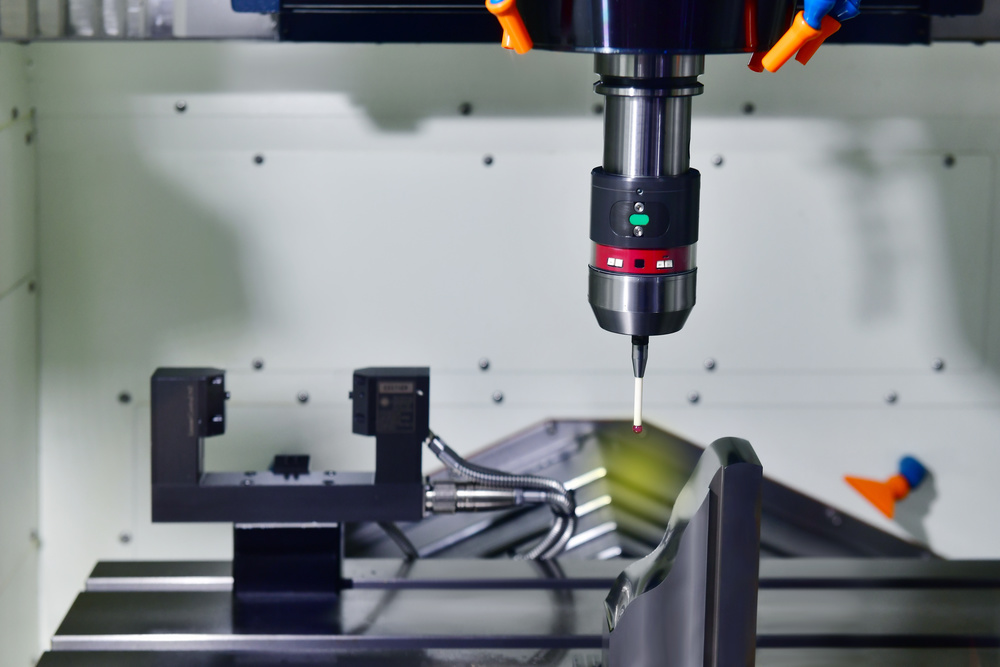
Preparation Guidelines
- Provide detailed 3D models (STEP, IGES, or STL files)
- Include 2D drawings with GD&T annotations
- Specify material requirements and certifications
- Define surface finish requirements (Ra values)
- Base tolerances on functional requirements, not defaults
- Consider material properties when specifying tolerances
- Use standard tolerance grades (ISO 286) when possible
- Identify critical dimensions that affect functionality
- Define inspection criteria and acceptance standards
- Specify testing requirements (if any)
- Request documentation (material certificates, inspection reports)
- Consider PPAP requirements for automotive applications
Project Management Process
- Initial Consultation
-
- Technical review of designs
-
- Material selection recommendations
-
- Manufacturing feasibility assessment
-
- Cost estimation and lead time proposal
- Prototype Development
-
- Rapid prototyping service
-
- Design validation testing
-
- Iteration and optimization
-
- Final design approval
- Production Planning
-
- Manufacturing process development
-
- Tooling and fixture design
-
- Quality control plan implementation
-
- Production scheduling
- Manufacturing Execution
-
- Precision machining operations
-
- In-process quality inspections
-
- Surface finishing and treatment
-
- Final inspection and testing
- Delivery and Support
-
- Packaging and shipping coordination
-
- Installation support (if required)
-
- After-sales service and technical support
-
- Continuous improvement initiatives
Why Choose Our CNC Plastic Machining Service
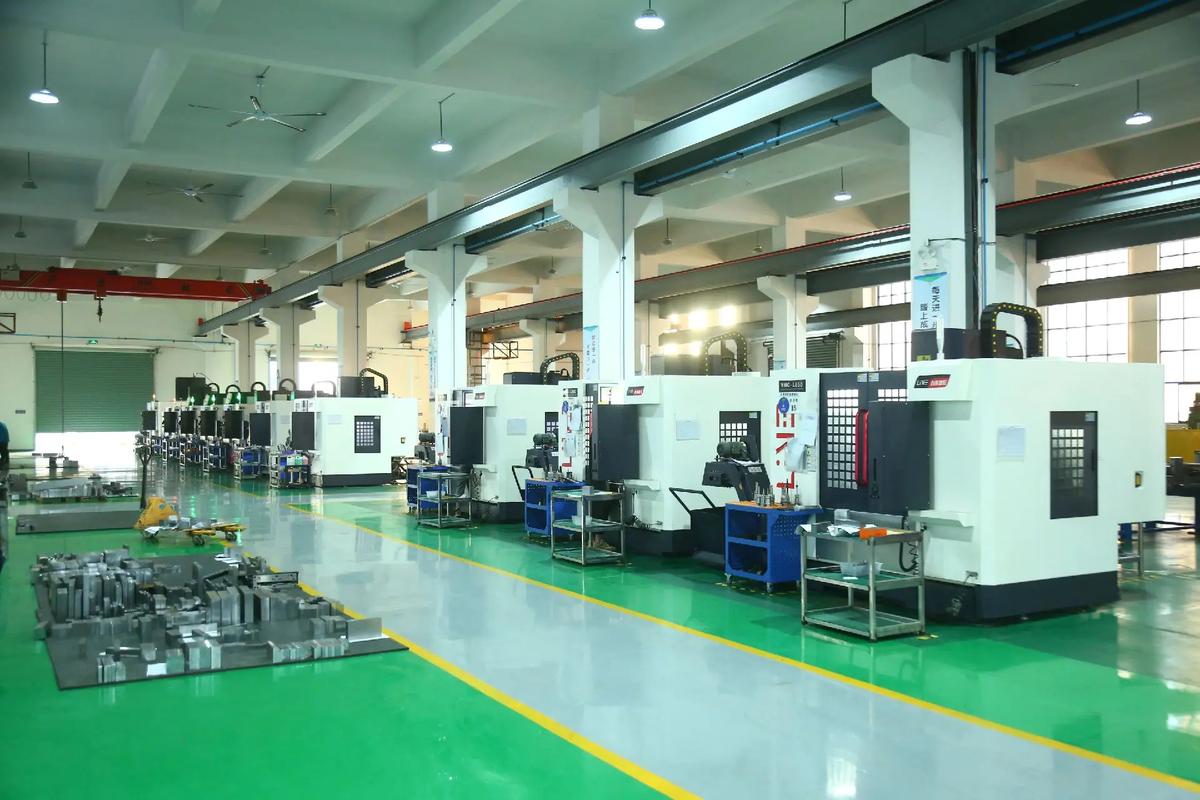
Company Strengths
- 26 years of manufacturing experience
- National high-tech enterprise certification
- ISO 9001 quality management system
- SGS, RoHS, CE international certifications
- 100+ advanced CNC machines
- 5-axis machining centers for complex parts
- ±0.005 mm precision tolerance control
- CMM inspection for dimensional accuracy
- 24/7 manufacturing operations
- On-time delivery rate of 98%
- Production range: 1 piece to 100,000+ pieces
- Rapid prototyping service (24-48 hours)
- Serving customers in 50+ countries
- Multilingual technical support
- International shipping and logistics
- Local representatives in key markets
Quality Assurance
- Incoming material inspection
- In-process quality checks
- Final inspection before shipment
- Statistical process control
- Material certificates and test reports
- Inspection reports and measurement data
- Batch traceability for all components
- Compliance with industry standards
Case Studies
Case Study 1: Automotive Transmission Component
- European automotive Tier 1 supplier
- Developing new transmission system for electric vehicles
- Required precision plastic gears with tight tolerances
- Achieve ±0.01 mm tolerance on gear tooth profiles
- Ensure consistent quality across 50,000-piece annual production
- Meet strict durability and performance requirements
- Material: Delrin 500P (high-performance acetal copolymer)
- Process: 5-axis CNC machining with specialized gear cutting tools
- Quality Control: CMM inspection of every 100th part
- Production: Automated manufacturing cells with SPC monitoring
- Successfully maintained ±0.008 mm tolerance (exceeding requirement)
- Zero defects in initial production run
- Improved transmission efficiency by 3%
- Secured long-term supply contract for 5 years
Case Study 2: Medical Device Component
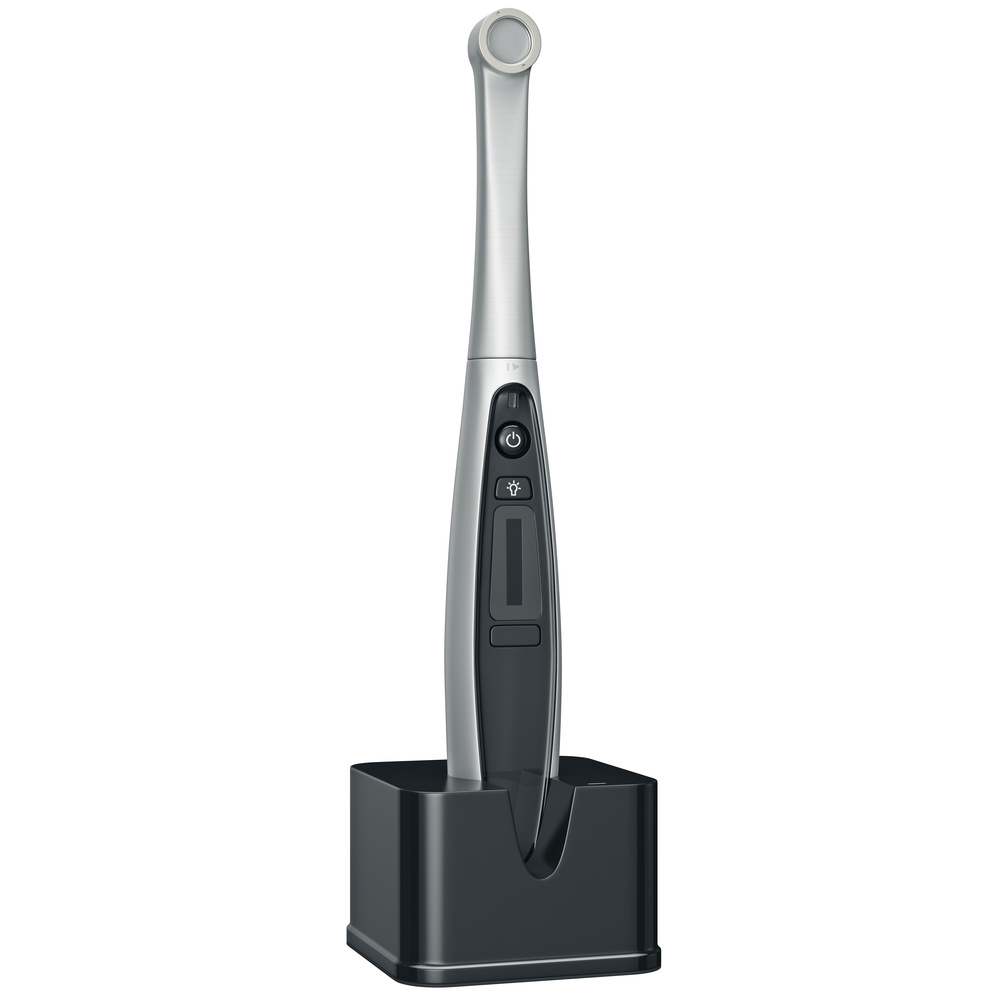
- US-based medical device manufacturer
- Developing minimally invasive surgical instrument
- Required biocompatible plastic components
- Material must meet USP Class VI biocompatibility standards
- Complex geometry requiring multi-axis machining
- Strict cleanliness requirements for medical applications
- Material: PEEK (biocompatible, sterilizable polymer)
- Process: Dedicated cleanroom machining environment
- Quality Control: 100% inspection with laser scanning
- Documentation: Full PPAP Level 3 documentation package
- Components passed all biocompatibility tests
- Met FDA regulatory requirements for medical devices
- Enabled successful product launch within timeline
- Established ongoing partnership for multiple product lines
Conclusion
- Superior precision (±0.005 mm tolerance capability)
- Material versatility (from common plastics to high-performance polymers)
- Production flexibility (1 piece to 100,000+ pieces)
- Cost-effectiveness (no mold costs for small to medium batches)

